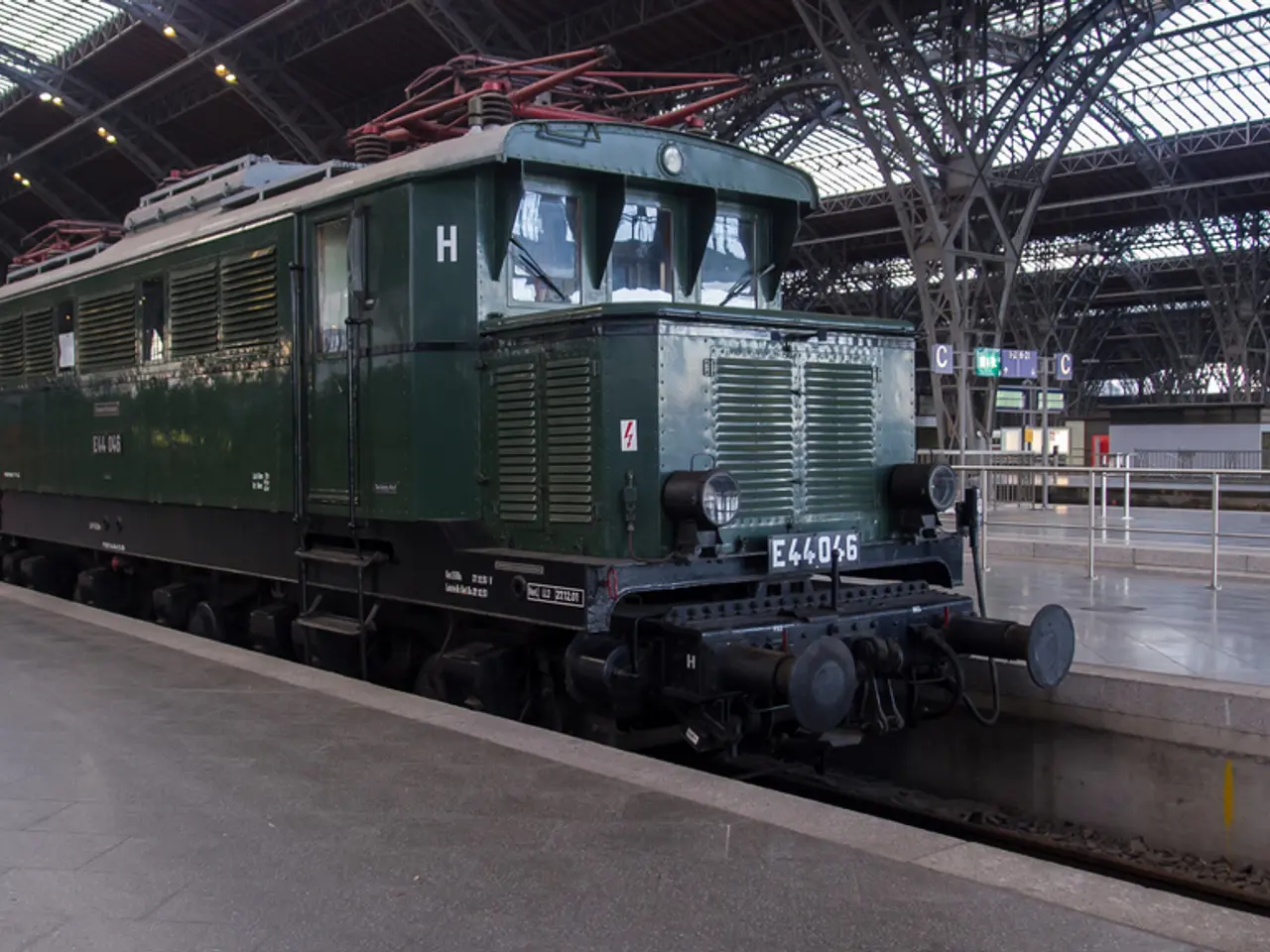Challenges Confronting the Prospective Railroad Administrator
In the heart of Europe, Deutsche Bahn (DB), Germany's national railway company, is navigating a tumultuous period. The current CEO, Richard Lutz, was dismissed in August 2025, and a successor has yet to be appointed, leaving him in a temporary role [1][2][3][5].
The search for a new leader is proving to be a complex task due to the company's current predicament and the scarcity of suitable candidates [1]. As the search continues, DB grapples with several pressing issues, including a decline in punctuality, infrastructure decay, political pressures, and financial constraints.
Punctuality problems have plagued DB, with train punctuality dropping from 78.5% to 62.5%, leading to increased customer dissatisfaction and nearly €200 million in compensation payments [2]. The German rail network, suffering from chronic underinvestment and crumbling infrastructure, is a significant contributing factor to these delays. Last year, nearly 40% of long-distance trains were late [2].
The need for modernization and renovation is immense, as cautioned by industry experts [4]. DB's financial strain is evident, despite government plans to invest heavily, including a €500 billion fund for infrastructure [2][4]. The company's transport subsidiary, DB Cargo, has been posting losses for years and is under significant pressure.
Political pressure to strengthen rail transport and expand services, such as night trains, is strong. However, financial constraints and infrastructure capacity pose a risk to these ambitions, creating a dilemma between political goals and economic realities [4].
The focus at present is on renovating the existing network, with no funds available for new or expansion projects. DB has a massive investment backlog in the high double-digit billions due to decades of neglect [4]. The development of DB's infrastructure and operations heavily depends on government goodwill and funding.
Federal Transport Minister Patrick Schnieder plans to present a new strategy for DB on September 22, with a focus on customer satisfaction. The new CEO will need to secure funding for the renovation projects in the coming years [1][4]. The main culprit for DB Cargo's poor results is the single-wagon traffic, which is not profitable despite federal funding [3].
This renovation process will involve months-long closures for comprehensive modernizations, starting with the Riedbahn between Frankfurt and Mannheim and currently ongoing on the Hamburg-Berlin route [3]. Some transport experts have criticized the concept of extensive renovations and closures, but the approach is generally accepted in the industry [3].
Outgoing CEO Lutz warns that the funds recently provided to DB will not be enough to make it future-proof [2]. The upcoming wage negotiations with the GDL are approaching, with the question of whether the new union leader will continue the confrontational approach of the previous leader [3].
As DB faces significant issues, including poor punctuality, a dilapidated rail network, and financial losses, calls for stronger government control and reliable financing of infrastructure are growing louder. Green Party transport expert Matthias Gastel has expressed this sentiment, urging for more government intervention [2].
Schneider has stated that DB must be punctual, safe, clean, faster, slimmer, more powerful, and more economical to improve its current situation, which he described as "dramatic" [2]. The "Germany Tack" aims to connect important main axes of long-distance traffic at half-hourly intervals, improving transfer opportunities and shortening travel times [2].
It is not yet clear who will succeed current CEO Richard Lutz, with names like DB Regio CEO Evelyn Palla, former Finance Minister Joerg Kukies, and Michael Peter, CEO of Siemens Mobility, being mentioned as potential candidates [1]. DB has also been ordered by the EU Commission to turn a profit next year as part of a state aid procedure [3].
The road ahead for Deutsche Bahn is fraught with challenges, but the company remains a crucial part of Germany's infrastructure. The appointment of a new CEO and the implementation of a new strategy will be key to navigating these difficulties and securing a brighter future for the national railway.
- The new CEO of Deutsche Bahn (DB) will play a significant role in shaping the company's future by addressing pressing issues such as technological advancement in infrastructure, improving punctuality, and finding solutions to financial constraints and infrastructure decay.
- To foster economic growth and future-proof the company, the incoming leader must focus on education and self-development, encouraging the adoption of new technologies and innovative approaches to transport, while prioritizing sports initiatives that promote employee well-being and team spirit.




